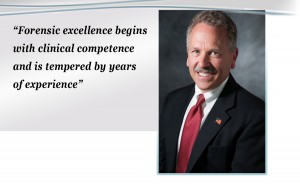LETTERS TO THE EDITOR
Psychic Akathisia
To the Editor:
Use of atypical antipsychotics has become the standard of care in the treatment of psychosis.1 As newer agents enter the marketplace, clinicians have a choice of medications with significantly different receptor binding profiles.2, 3 Ziprasidone, the newest agent on the market, is notable for its ability to act as a 5HT1-A agonist. In addition, ziprasidone is thought to bind almost exclusively in the A10 mesolimbic/mesocortical pathway and to avoid the A9 nigrostriatal pathway in the brain.4 Thus, akathisia would not be expected to be a frequent occurrence with this medication.
Nonetheless, after a year in the market, I and other clinicians with whom I have regular contact have seen patients develop on rare occasions a level of agitation that has been confusing. Just what this represents is controversial. Some have proposed that it is anxiety, while others have hypothesized a “serotonin syndrome.”
My hypothesis is that what we are seeing is “psychic akathisia,” a term not yet in the literature but appropriately descriptive of the phenomenon. All antipsychotics can cause akathisia,5, 6 but because of ziprasidone’s minimal or absent binding in a motor pathway (the A9 pathway), the patient experiences this almost exclusively as a subjective restlessness and agitation.
I have found that treating the problem as though it is akathisia is generally therapeutic. Interventions have included beta blockers, benzodiazepines (rarely very helpful), cyproheptadine,7 and most recently donepezil,8 under the theory that altering the ratio of dopamine and acetylcholine in the brain may be more important in the etiology of akathisia than the absolute amount of either neurotransmitter itself.
Further study of this issue is warranted and encouraged as we all strive to do better in treating some of medicine’s most challenging patients.
Journal of Clinical Psychopharmacology • Volume 23, Number 2, April 2003

Neil S. Kaye M.D. is an active clinician and expert witness. As a specialist in Forensic Psychiatry, his testimony has had a major impact in high profile cases.
Neil S. Kaye, MD, DFAPA
Department of Psychiatry and Human Behavior and Department of Family Medicine, Jefferson Medical College,
Philadelphia, Pennsylvania
REFERENCES
Kaye N. Tardive dyskinesia, tremors inmedicine and law. J Am Acad Psych Law 1999;27:315–33.
Schmidt A. Ziprasidone: a novel antipsychotic agent with a unique human receptor binding profile. Eur J Pharmacol 2001;425:197–201.
Keck P. Ziprasidone: a new atypical antipsychotic. Expert Opin Pharmacother 2001;2:1033–42.
Ziprasidone package insert. New York: Pfizer Pharmaceuticals, February 2001.
Tandon, R. Ziprasidone appears to offer important therapeutic and tolerability advantages over conventional, and some novel, antipsychotics. Br J Clin Pharmacol 2000;49(suppl 1):1–3.
Blin O. A comparative review of new antipsychotics. Can J Psychiatry 1999;44:235–44.
Fischel T, et al. Cyproheptadine versus propranolol for the treatment of acute neuroleptic-induced akathisia. J Clin Psychopharmacol 2001;21:612–5.
Jacobsen F. Donepezil for cognitive adverse effects of psychotropic drugs. Curr Aff Ill, 1999;18(11):5–11.